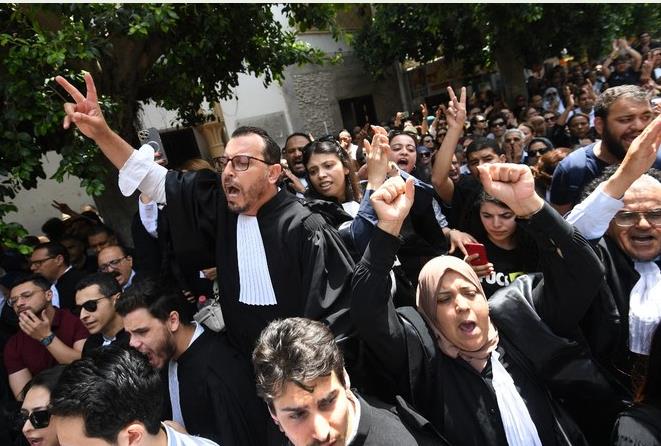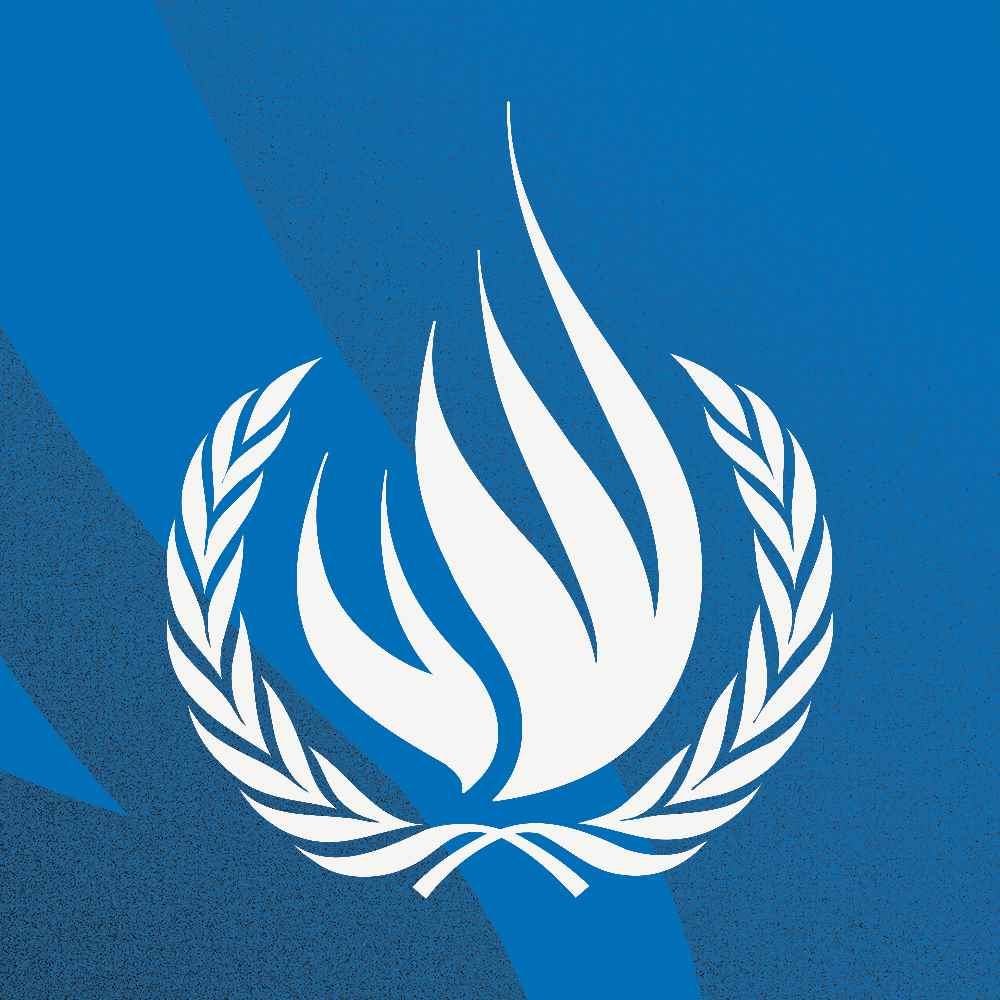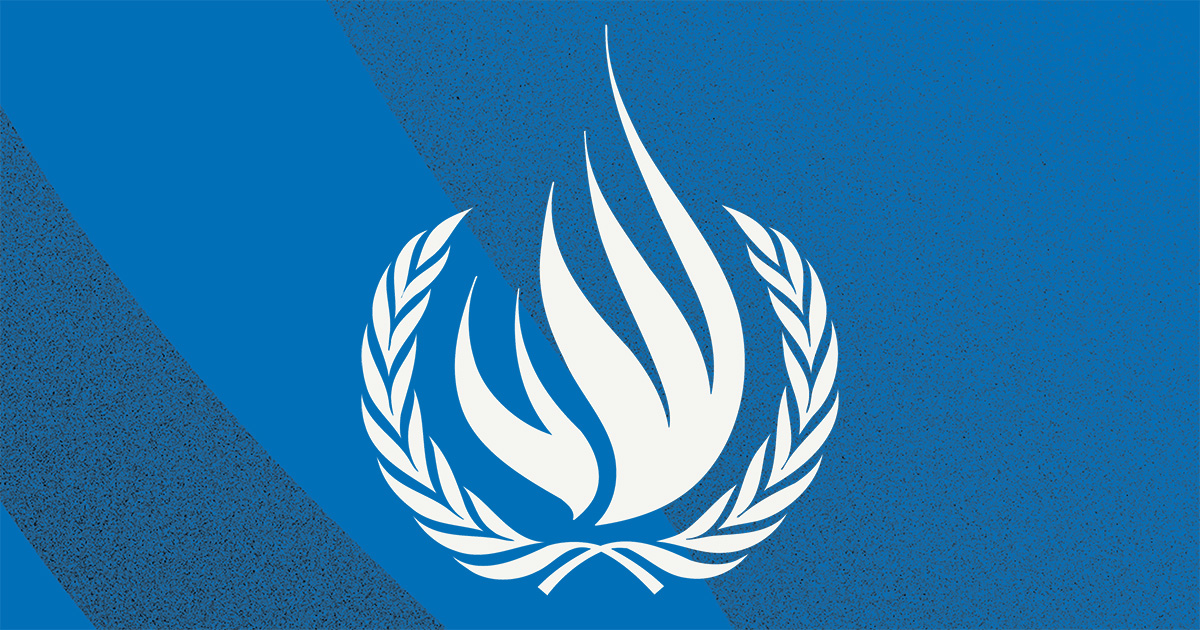
GENEVA (31 May 2024) — The violent detention and arrest of lawyers Sonia Dahmani and Mehdi Zaghrouba at the headquarters of Tunisia’s bar association, and the prevention of a prominent judge from attending an international meeting, are unacceptable violations of fundamental rights that must be stopped, UN experts said.
“We are shocked that at his hearing, Mr Zaghrouba bore marks from beating, bruises and scratches on different parts of his body, including his right shoulder, back, legs, arms and fingers,” the experts said. “During proceedings Mr Zaghrouba’s health deteriorated rapidly, he started vomiting, and then he lost consciousness.”
They called for immediate medical attention for Zaghrouba, as well as an independent investigation, adding that the prohibition of torture is absolute.
“We note with concern that Judge Anas Hmedi, who is the President of the Association of Tunisian Magistrates (AMT), was denied his request for leave to attend the annual meeting of the International Association of Judges in Africa in May,” the experts said. “We are especially concerned that the refusal from the Ministry of Justice contained no justification and restricted the AMT’s trade union activities by denying its President the leave required for his official travel.”
These detentions, the bar association raids, the denial of leave for the AMT’s President, are excessive restrictions on the right to freedom of opinion and expression, as well as the rights to freedom of peaceful assembly and of association for lawyers and judges in Tunisia, the experts said.
“We are concerned that these actions may constitute reprisals against Judge Anas Hmedi for exercising his rights to freedom of peaceful assembly and of association,” they said. “In accordance with international human rights law, members of the judiciary are like other individuals entitled to freedom of expression, association and peaceful assembly.
“We are deeply concerned about the negative impact of recent actions by the Executive on judicial independence and the right to fair trial and access to justice for all people in Tunisia.”
The Special Rapporteurs said that Ministry of Justice has started using the work memoranda mechanism, arbitrarily and outside any legal framework, to change the composition of the courts, their presidents, public prosecution judges, instruction judges and judicial chambers.
“We are especially worried that these memos have come about following interrogations of judges by the General Inspectorate of the Ministry of Justice and violate the independence and impartiality of judicial work. These changes in the middle of the judicial year appear to be reprisals or punishment,” they said.
The experts expressed concern about judicial independence after President Kais Saied dissolved the High Judicial Council in February 2022 and summarily dismissed 57 judges in June 2022.
“We urge the Government to end all undue restrictions on the legitimate exercise of the rights to freedom of peaceful assembly and of association of judges and lawyers in Tunisia. We remain available for meaningful dialogue on these critical issues,” the experts said.
The Special Rapporteurs have written to Tunisia about these concerns.
The experts: Margaret Satterthwaite, Special Rapporteur on the independence of judges and lawyers; Gina Romero, Special Rapporteur on the rights to freedom of peaceful assembly and of association; Irene Khan, Special Rapporteur on freedom of opinion and expression; Mary Lawlor, Special Rapporteur on the situation of human rights defenders.
Special Rapporteurs are part of what is known as the Special Procedures of the Human Rights Council. Special Procedures, the largest body of independent experts in the UN Human Rights system, is the general name of the Council’s independent fact-finding and monitoring mechanisms that address either specific country situations or thematic issues in all parts of the world. Special Procedures experts work on a voluntary basis; they are not UN staff and do not receive a salary for their work. They are independent of any government or organisation and serve in their individual capacity.
UN Human Rights, Country Page – Tunisia
For further information and media requests, please contact: Melanie Santizo (+41 22 917 9963 / melanie.santizosandoval@un.org).
For media enquiries regarding other UN independent experts, please contact Dharisha Indraguptha (dharisha.indraguptha@un.org) or John Newland (john.newland@un.org)
Follow news related to the UN"s independent human rights experts on Twitter @UN_SPExperts.







